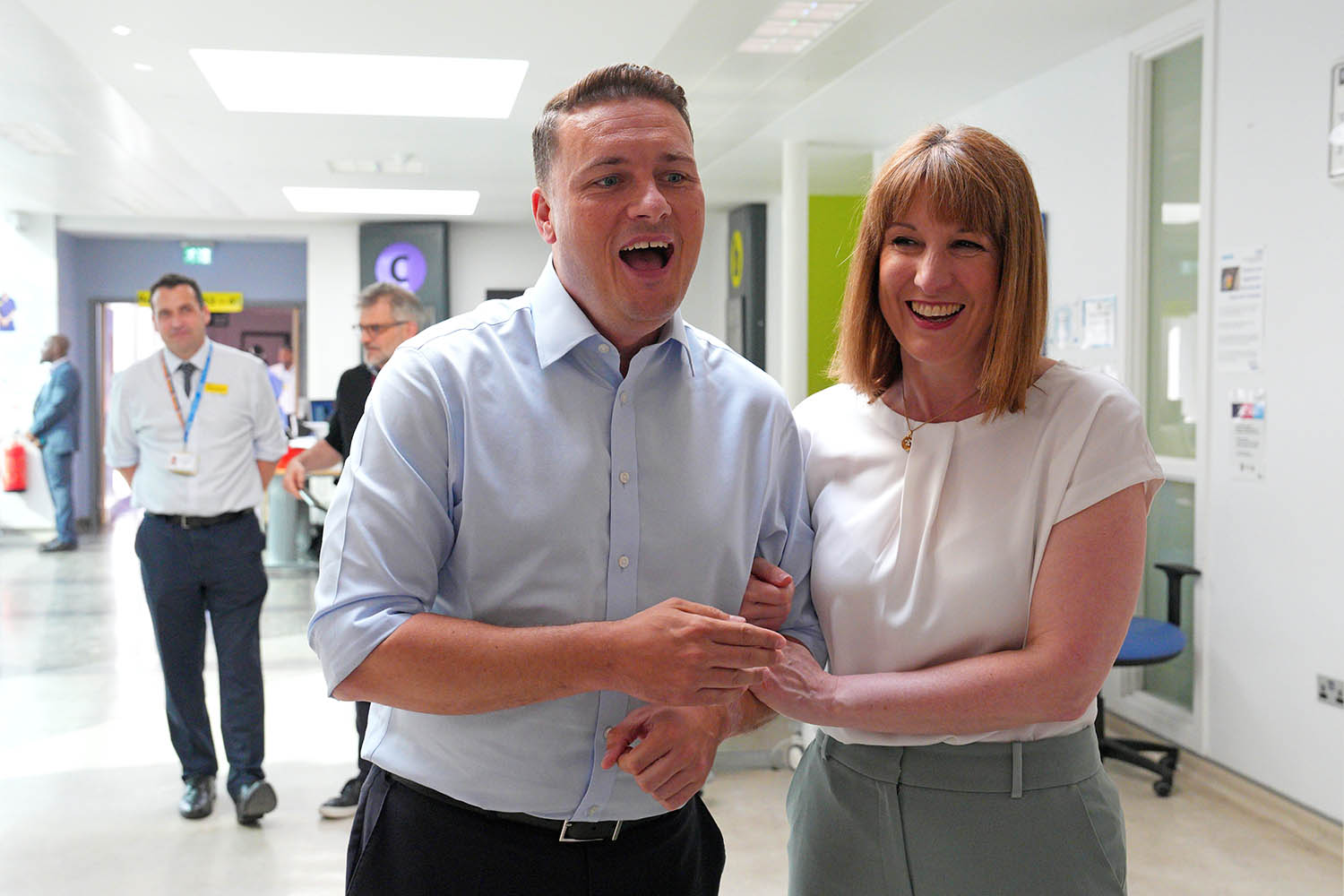Wes Streeting has been sounding even chirpier than usual since the spending review. Speaking the day after to a conference of health professionals, he told them that an extra £29bn for the NHS was “a hell of a lot of money”. Indeed it is. The health secretary is not just the standout winner of the financial arm wrestling with the Treasury – he came out many, many miles ahead of envious cabinet colleagues. The jump in the cash allocated to his department means that health accounts for £9 out of every £10 of the real additional funding for day-to-day spending. The NHS is on track to consume 40% of all state spending by the end of this decade. That is another advance along a trajectory to a point where we will have a health service with a government attached. And yet barely had the largesse been announced than significant figures in the NHS were complaining that it wouldn’t be enough to give the British people the health service they thought they deserved.
Having bagged what was a generous settlement in the fiscal climate, the health secretary must now match it with the “revolutionary” modernising programme he has promised or he will be sloshing more water into a leaky bucket. Without reform, a creaking service will be unable to cope with the rising demands of an ageing society, and the government will cop the blame for its failings.
The health secretary’s master plan for what he calls “NHS version two” will be outlined in a “10-year health plan”, to be unveiled in July. He wants to make “three big shifts”. One aim is to update the NHS from being a sluggish and inefficient analogue service that still does a lot of its work using paper files and letters sent in the post. At the moment, many appointments are wastefully missed because the invitation to attend treatment doesn’t come through the patient’s letter box until after the day. The imperative is to make the NHS fit for the 2020s by turning it into a digitally joined-up service.
Another reform is to put more emphasis on prevention, as it is better for the citizen and cheaper for the state to stop people from becoming ill in the first place than it is to treat them once they have fallen sick. The third reform is to switch to putting a lot of care into the community. The traditional model of sending patients to costly hospitals for consultations, tests and treatments will be replaced by a “neighbourhood health service” in which the bulk of routine appointments are dealt with by high-street doctors and nurses. None of this is wildly new. These are shifts that have long been advocated by health reformers. The novelty would be to see them implemented.
While they feel let down by the performance of the NHS, the British remain in love with the principle of a free-at-the-point-of-delivery service
While they feel let down by the performance of the NHS, the British remain in love with the principle of a free-at-the-point-of-delivery service
The health secretary has advantages. He is smart and hard-driving while being one of the cabinet’s punchiest and most fluent communicators. He’s shown himself unafraid to challenge shibboleths and vested interests, both of which are well represented in the NHS. He’s popular among Labour activists, who have him as one of their top three picks to replace Sir Keir Starmer when Labour is looking for a new leader.
The British people will want him to succeed. Satisfaction with the NHS hit an all-time high of 70% at the end of Labour’s last period in office. The approval rating had collapsed to an all-time low of 21% by the end of 14 years of Conservative rule. Waiting lists are down a bit since Labour came to power. But there are still more than 7 million on the list in England, almost double the number before Covid.
While they feel let down by the performance of the NHS, the British remain in love with the principle of a free-at-the-point-of-delivery service financed from taxation. Surveys indicate that there are few takers for a move to the kind of continental, insurance-based model that Nigel Farage has advocated.
One of the knottiest challenges is the NHS’s serious slump in productivity since the pandemic. The government thinks part of the problem is antiquated IT, and its answer is investment in technology. The NHS app is to become a digital front door for patients to manage prescriptions, receive communications and directly access services. We have evidence of the rewards that can come from deploying kit that is enabled with machine learning. Using AI to speed up scans for suspected lung cancer, a diagnosis that used to take seven days can be returned in as little as seven seconds. The more innovative GP surgeries are using digital triage to end the rat race of the early-morning phone sprint to secure an appointment.
Related articles:
The biggest hole in the health secretary’s modernisation model is the lack of a plan to overhaul social care. For fear of the cost, sorting that out has been kicked into the long grass of yet another review. This January, one in seven beds in NHS hospitals were occupied by elderly patients who were well enough to leave but couldn’t be safely discharged because they hadn’t got a care home to go to or a community care package to look after them. Bed-blocking wastes money and gums up the works. Health managers say we won’t see an end to the degradation of vulnerable patients being parked in crowded hospital corridors until we have a government courageous enough to grip social care.
Reforming the NHS will be a hydra-headed challenge even for a highly energetic health secretary. Past efforts to modernise technology have often been expensive flops. Staff morale is fragile and resident doctors, as junior doctors are now called, are threatening a fresh round of disruptive strikes in pursuit of more pay. Mr Streeting will probably have to make some enemies among health professionals and their vocal lobby groups before he is done.
Newsletters
Choose the newsletters you want to receive
View more
For information about how The Observer protects your data, read our Privacy Policy
The obstacles to reform will be significant, but the spurs to succeed are compelling. Pollsters invariably report that health is at, or very near, the top of issues most salient with the public. Fixing the NHS won’t guarantee Labour a second term in power; failing to do so will greatly increase the chances that it loses the next election. The health secretary’s ambitions to move upwards towards No 10 depend on him delivering. So do his party’s electoral fortunes. And so does restoring Britain’s faith in its beloved but battered NHS.
Photograph by Carl Court/AP



